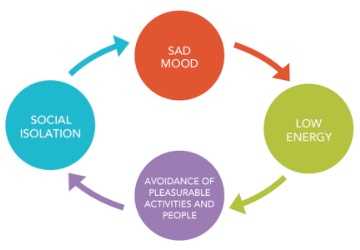The Role of Therapy in Treating Depression
Do you want to address depression's conditions? Depression is a silent killer affecting millions worldwide. Many search for a cure, shifting treatments in vain. This illness can be overwhelming.
Depression has become part of many life aspects. Sleep disorders and chronic pain are not strangers. For work and functioning, it is as devastating.
This article explains how Therapy helps treat depression. If you are experiencing it, you will find advice here. Read to learn how Therapy can guide recovery.
Let's get started.
Why Therapy Matters in Treating Depression
Depression requires more than quick-fix treatments; Therapy is a tool to heal. While many methods offer temporary relief, therapy addresses the roots of depressive ideas and emotions.
Therapy provides tools to deal with life's problems. You'll learn stress management, interpersonal skills, and self-esteem enhancement. These tools remain in the therapist's office during sessions.
The therapist-patient relationship can heal. In depression, you feel isolated; having a non-judgmental listener is beneficial. You acquire a partner against the illness.
Therapy gives an individual approach to treatment. It helps you regain mental health control, creating a platform for a better future.

Types of Therapy for Depression
Here are different types of Therapy for depression:
1. Cognitive Behavioral Therapy (CBT): Rewiring Thought Patterns
CBT assists you to identify and question the thoughts that cause depression in the first place. You can change pessimistic attitudes to more positive and reasonable ones.
During CBT sessions, you may be required to maintain a thought record or act out challenging scenarios. Your therapist will help you identify and develop rational ones.
2. Interpersonal Therapy (IPT): Mending Relationships, Lifting Mood
IPT focuses on relationships and social roles in an individual's life.
It's grounded on the premise that enhancing these aspects can raise depression. It improves communication skills and helps people better understand how to solve conflicts.
Typical IPT topics include loss, life transitions, and social skills. You and your therapist will discuss the challenges and steps you will take to develop better relationships.
3. Psychodynamic Therapy: Unearthing Hidden Influences
This approach goes down to your past and even the subconscious level of your mind.
It is kind of like being an archaeologist of your mind, thus looking for possible causes of the present state of depression.
In sessions, you may talk about childhood or patterns of relationships you have had. The purpose is to find out how they shape the present difficulties.
4. Mindfulness-Based Cognitive Therapy (MBCT): Present-Moment Awareness
Cognitive techniques are incorporated into mindfulness practice in MBCT.
You learn how to watch your thoughts without necessarily being drawn by them. This can help people discontinue the negative thought pattern that feeds depression.
The intervention we will receive involves meditation, body scans, and similar mindfulness activities. These activities assist us in staying in the present moment instead of thinking about the past or future.
The studies also depict that MBCT can be more helpful in preventing relapse of depression.
Most patient clients show improved control over their thoughts and emotions after the MBCT program.
5. Behavioral Activation (BA): Doing to Feel Better
BA aims to help the client regain the ability to be active and participate in activities. It is grounded on the principle that activity influences mood.
Your therapist will assist you in developing a schedule that entails activities that make you happy and full of energy.
You could begin with something less challenging, such as going for a walk or making a phone call to a friend. Then, you will progress to the more elaborate and enriching tasks.
The purpose is to interrupt the vicious cycle of inactivity and depressed state.

Take the First Step Towards Depression
Depression does not have to be the plot of your life. It is a way to take your life back and find happiness. Do not wait for a rock-bottom situation to look for help.
Some people who have been on this journey wish they had sought the help of a therapist earlier enough. One of the patients said, "Therapy was like turning on the light in a dark room; it gave me hope."
As you will find out, it is a strength to ask for help when one cannot handle it alone. You would not think twice about visiting a physician to address a bone fracture. Your mind also needs to be taken care of.
Do not let that first step be tomorrow or the next day; do it now. Consult with a therapist or any mental health worker. Your future self will thank you!
Frequently Asked Questions
Q. How long does therapy for depression typically last?
Ans: Therapy duration varies widely. Some people notice a positive change in 8-12 weeks, while others need long-term care. The duration of the treatment will depend on your therapist.
Q. Can Therapy be combined with medication for better results?
Ans: Many find that Therapy and medication are the most effective ways of combating the condition. It addresses depression holistically because it targets different aspects of the condition.
Q. What should I look for in a good therapist?
Ans: Find a healthcare provider that has a license in treating depression. Find a person with whom you can be open and who does not judge you.
Q. Are there any side effects of Therapy for depression?
Ans: One thing that sets Therapy apart from medication is that Therapy does not have side effects in the physical sense. But, you may feel some brief distress as you confront various problems in your life.





